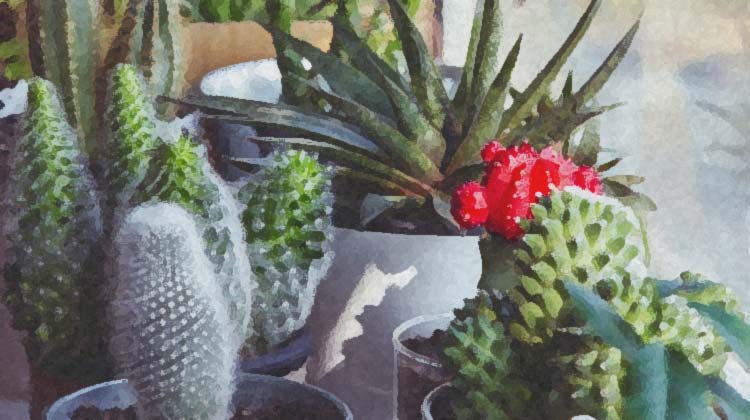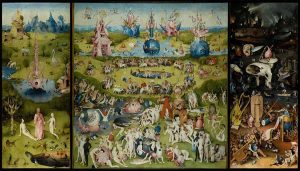
Canadian poet Lisa Pasold posts a photo of her neighbour’s cactus plants, suddenly in bloom with the hashtag #poetrykeepsmesane, along with a quote from something of mine. While I appreciate the gesture, I would think the flowering cactus provides more salve in her example than I ever could.
In lock-down, I ruminate upon my own bookshelves, moving back and forth from titles slipped from my non-fiction shelves, my poetry shelves, my trade comic shelves. Avengers vs. X-Men, or Original Sin. Books I haven’t looked through in months, even years. From New Zealand poet Hera Lindsay Bird’s self-titled debut (2016), the poem “PAIN IMPERATIVES,” that includes:
The past is a bad invention that keeps on happening
And it hurts to think about, like an unpaid billIt’s the wind dragging the desert backwards at night
& it burns you, like a little pastel whip
I picked this up during our last visit through London, having just emerged from an overnight train out of the Scottish Highlands. Might travel exist again? Is London still there? Was it all just a dream? The world becomes increasingly abstract, simultaneously collapsing and, via digital connection and potential overlapping experience, if not outright shared, becomes more expansive.
Via Time magazine, Margaret Atwood says “It’s the best of times, it’s the worst of times. How you experience this time will be, in part, up to you.” Hers is a practical list that presumes a certain amount of financial stability and comfort: how we should and could still access bookstores, and check in with loved ones. Hers is an article focusing very much on simply getting to the work at hand; but what if one hasn’t the options to do so?
I take her advice with a grain of salt, aware of how privileged she is in such a situation, and our household as well, knowing so many are on the front lines, with fewer options on how they are supposed to be dealing with all of this. Her comments appear to be directed to so many of those going squirrelly at home in self-isolations, unable to work, or do much at all. I think of my sister, dealing with the chaos of caregiving our father in our neighbour’s house, and how long that might last before the homestead returns from the cleaners. Atwood writes:
Finally, keep the faith. You can make it across that moat! Yes, this moment is scary and unpleasant. People are dying. People are losing their jobs and the feeling that they’re in control of their lives, however cliff’s-edge that control may have been. But if you aren’t ill—and even if you have small children and feel your brain has been kidnapped—you’re actually in a good place, comparatively speaking.
You can enjoy this time, albeit at a pace somewhat less frenzied than it was when things were “normal.” Many are questioning that pace—What was the hurry?—and deciding to live differently.
I would like to see those differences, although, as Mary Harris points out in an April 16th piece for Slate, we have neither exit strategies for re-opening the economy nor returning to whatever “normal” is supposed to look like. Perhaps there is no such thing. As she interviews Ed Yong, a science writer for The Atlantic, as part of her piece, he responds:
I think the idea that life will be dramatically different is correct. You could argue that a failure of imagination has led us to the point we’re currently at: where even people who’ve been thinking about this for a long time didn’t foresee some of the stumbling points in America’s past, like its inability to get a good diagnostic test up and running throughout the country in time.
It’s going to take feats of imagination to steel ourselves—not just in terms of material resources and logistical plans, but also psychologically—for the idea that the summer, the rest of the year, maybe even longer, is going to be different.
I see someone post the poem “RED SQUALL,” by Wanda Coleman, a poem that includes: “There’s no relief, but I refuse the flood [.]”
It is strange to think that today should have been the Anansi Poetry Bash at the Manx Pub, as part of the spring edition of the Ottawa International Writers Festival, featuring: “Roguelike by Mathew Henderson, the much-anticipated follow-up to his acclaimed 2012 debut The Lease; John Elizabeth Stintzi’s debut collection, Junebat, and Griffin Poetry Prize winner A. F. Moritz’s twentieth collection, As Far As You Know.” I might even have been at that. Where did I put my copies of those?
Instead, I watch as articles begin to appear comparing President Trump and his supporters as being in an emerging “death cult,” willing to potentially sacrifice the lives of tens of thousands for the sake of re-opening the economy. Ali Breland, in an April 4, 2020 article for Mother Jones, compares the current situation to Jim Jones’ 1978 murder-suicide at Jonestown:
“A narcissist was forced to take down hundreds of people because that community was less important to him than the truth that he personally represented,” Zeller said on the phone, describing both Jones’ decision to poison his followers, and Trump’s musings about scrapping social distancing precautions. “Those were murders as well as suicides,” Zeller explained of Jonestown. “Ultimately it was more important for Jones and some of the people at the top of the movement that they all go out rather than be taken down by outsiders.”
My thoughts turn to mush. These essays, turn to mush. Individual pieces, like the days themselves, begin to feel indistinguishable.
Today it is raining. Last week it was snowing. It will snow again.
There are such swings of the pendulum, from doomsday anxieties to the refusal to give in to those same anxieties. We’re all in this together, they’ll say, until someone else points out that, in fact, we are not. Swing, baby, swing.
Perhaps it is a matter of writing, of writing ourselves into, or back into, existence, something Montreal writer Nicole Brossard figured out a very long time ago. From her Intimate Journal (2004), translated by Barbara Godard, Brossard writes:
25 March 1983
Everything’s a question of framing in the landscape of the real, of montage and dissolve in memory, when a mental frame is transformed into a precise image of a woman in the process of writing. In contrast, you have to expect the real twice because there is no real(ity) except the science of being as an absolute necessity otherwise consciousness does not survive, invisible in the montage.
Is this all imaginary? Within hours, I find myself deep in Andrew Hurley’s translation of Jorge Luis Borges’ The Book of Imaginary Beings (2005), specifically this fragment of his entry on “The Jinn”:
They make themselves visible at first as clouds or tall undefined pillars; then, according to their desire, they take the form of men, jackals, wolves, lions, scorpions, or serpents. Some are believers; others, infidels—heretics or atheists. Before a person kills a serpent, one should admonish it, in the name of the Prophet, to depart the chamber it has entered; it may be killed if it does not obey. Jinn are able to pass through thick walls or fly through the air or suddenly become invisible. “They often ascend to the confines of the lowest heaven,” Lane tells us, “and there, listening to the conversation of the Angels respecting things decreed by God, obtain knowledge of futurity, which they sometimes impart to men, who, by means of talismans, or certain invocations, make them to serve the purposes of magical performances.” Some scholars say that the Jinn (or one of them) built the pyramids of Egypt, and also, by order of Suleyman (Solomon), who knew the Most Great Name of god, the Temple of Jerusalem.
At Literary Hub, posted April 17, “An Argument for Slowing the F*ck Down with War and Peace: Natalie Adler on the Beauty of the Little Things,” Adler writes on the ongoing emergencies, border walls and climate change, writing:
A recommendation for the disoriented: spend a day in a dark theater with Sergei Bondarchuk’s 1968 opus adaptation of Leo Tolstoy’s War and Peace, which is newly restored and in limited release around the country. Waiting for spring is obviously a perfect time for long Russian novels and binge watching costume dramas, but what makes War and Peace so perfect is that it offers a different way of experiencing time than we do today, incessantly scrolling through a nightmare news cycle without a moment to process the effects of nonstop atrocity. In War and Peace, news emerges like gossip bubbling from the mouths of partygoers, or with the urgency of a letter that carries information that may already be out of date. Clocking in just over four hundred minutes, the four-part film is the right balm for our hyper-accelerated times.
If this is but a single moment, a single day, stretched out. Along similar lines, I begin to listen to Brian Eno: long, tonal structures that provide ambient foundation to this lengthy stretch. I seek out, and the internet provides: Thursday Afternoon (1985) and New Space Music (2014). I find his music soothing, having first come to it through listening to David Bowie. These days, Eno’s music is the difference of jam on bread.
Today is Sunday, and Christine heads out to collect pre-ordered soil and other supplies in a parking lot pick-up. She constructs our Victory Garden, attempting to increase the size of what we’d attempted last year. Why do we have so many pumpkin seeds? she asked. Why do we have so many beans? Yesterday, we even managed to assemble the new garden beds she’d ordered, long before these lock-downs began.
The squirrels have already pulled and devoured her tulip bulbs, all her planted garlic bulbs.
The days of the week: weekday mornings now include Zoom offerings at 9am from Aoife’s preschool. Wednesdays at 11am, Rose’s class does the same. Every second Friday, I head to the farm.
I attempt to remain in motion. Motion, as opposed to stasis, which might quickly develop into an apathetic immobility. Siri Hustvedt, from Living, Thinking, Looking (2012): “Living is movement. Thoughts are in motion, and when I think, my body thinks too. While writing I find the words not only in my mind but in the feeling of my fingers on the keyboard. When I’m stuck, I stand up and walk around the room, and walking often jogs the sentence loose.”
Where was that bookstore? It was inside a mall in London, during our honeymoon. I remember a piano set out for the public to play. Might this have been at a tube station?
Toronto announces a phased re-opening plan, as do Georgia, Tennessee and South Carolina. Is this a good idea? Better to be fluid, akin to Eno’s sustained note. It swells, contracts, twists.
Rose beelines into my office, and requests I assist her as she puts on their cat costume. Fifteen minutes later, Aoife requests I assist her to put on the same costume. “I’m going to be a good kitty,” she adds. Rose is now dressed as a witch. They are preparing a potion.





Leave a Reply